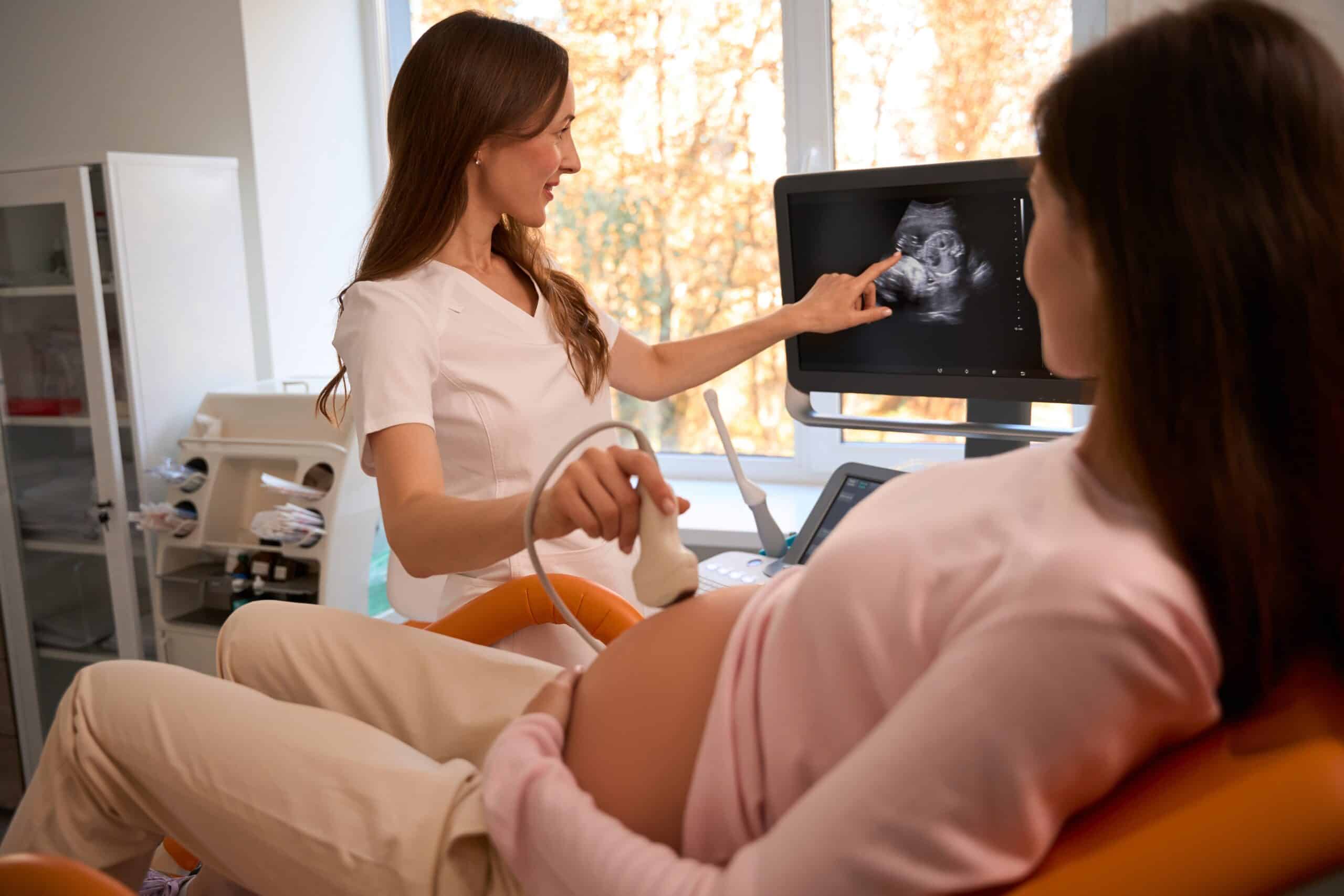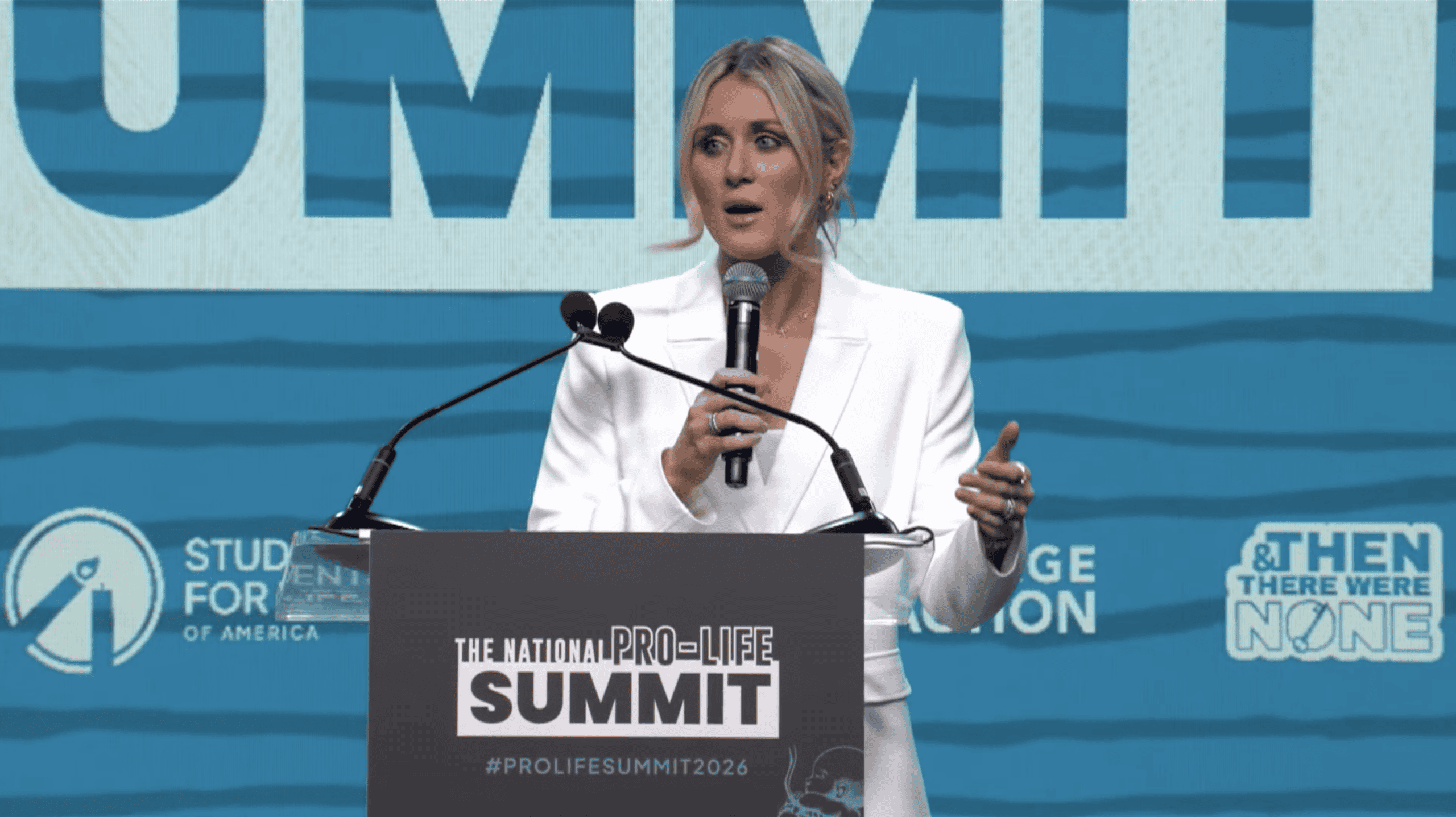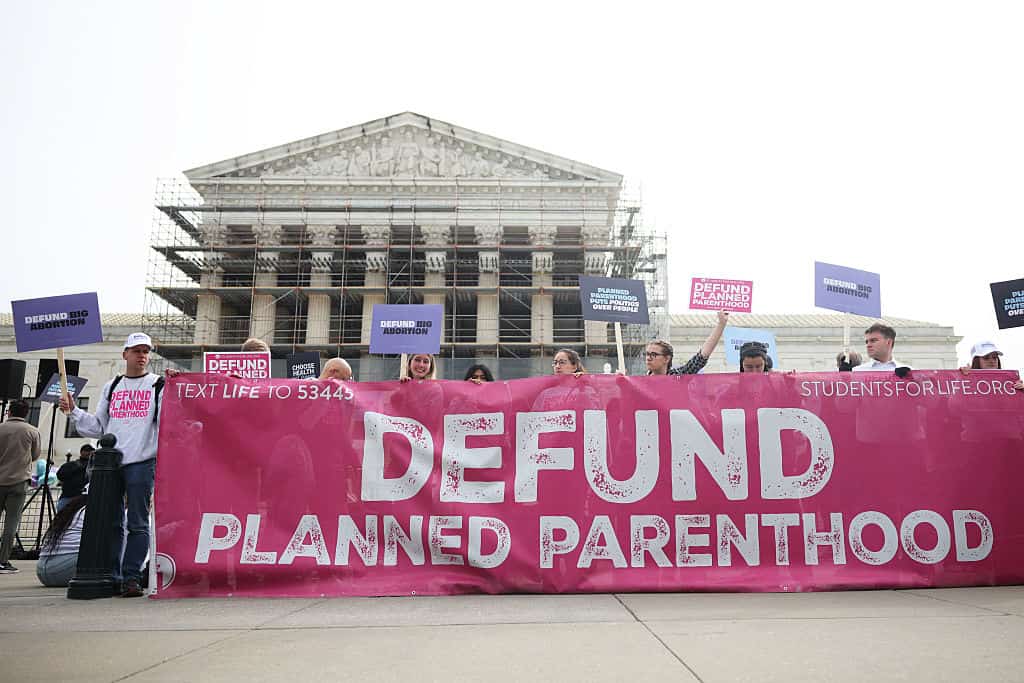Encouraging Signs that ‘Roe v. Wade’ is Vulnerable Emerge During Supreme Court Arguments in ‘Dobbs’
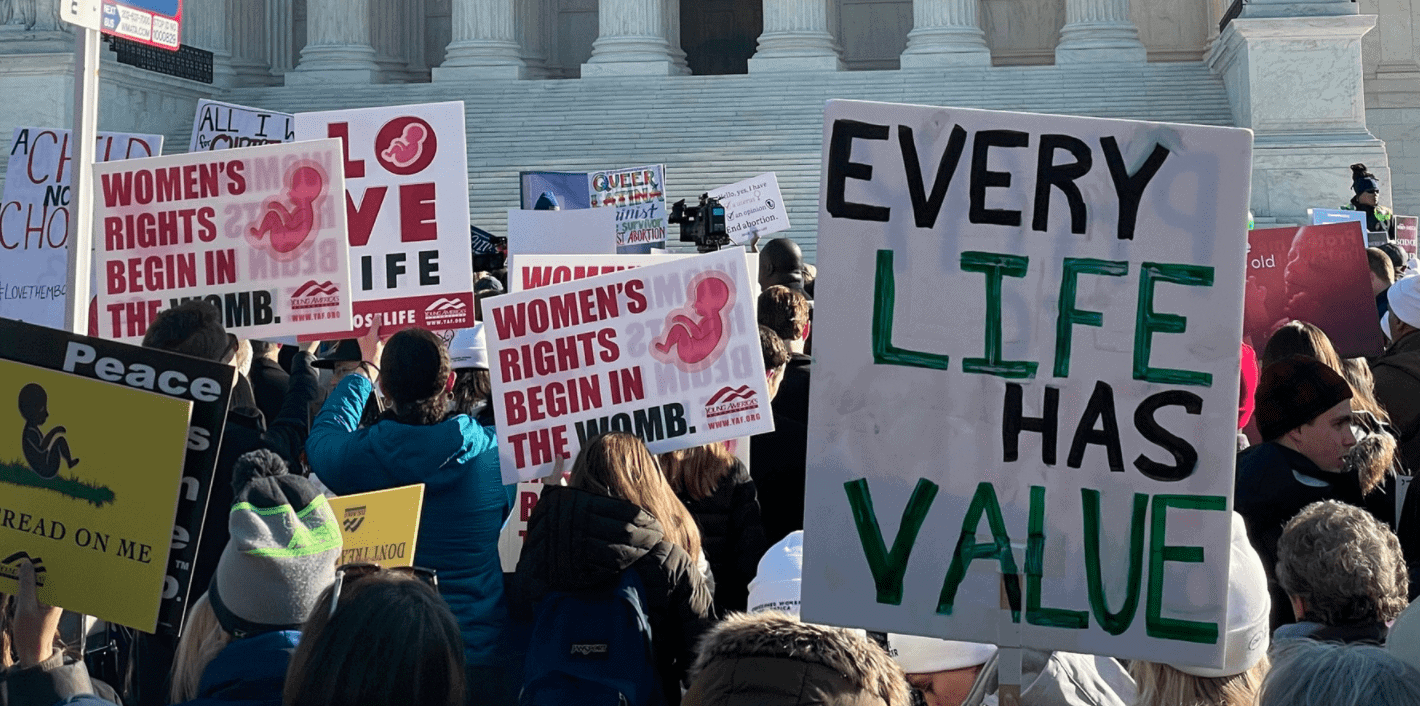
Outside the U.S. Supreme Court building on Wednesday, December 1, pro-life supporters far outnumbered pro-abortion protestors. Inside the building, the number of justices expressing deep concerns with various aspects of its 1973 ruling in Roe v. Wade and its 1992 ruling in Planned Parenthood v. Casey far outnumbered justices who supported keeping those rulings intact.
No matter the ultimate outcome, today’s oral arguments were historic.
Mississippi’s Solicitor General, Scott Stewart, spoke first, followed by attorney Julie Rikelman on behalf of the Jackson Women’s Health Organization, the abortion seller challenging Mississippi’s 15-week abortion ban. Those two were followed by U.S. Solicitor General Elizabeth Prelogar, who also argued that the Mississippi law was unconstitutional.
Not only did Stewart have to endure hostile questioning from the court’s three pro-abortion liberals – Sonia Sotomayor, Stephen Breyer and Elena Kagan – but also long-winded speeches apparently designed more to sway the conservative side of the bench rather than elicit answers from Stewart. Sotomayor and Breyer, in particular, took up large blocks of the questioning in order to indirectly lecture their fellow justices about the importance of abortion and the need to keep Roe and Casey undisturbed.
But it soon became clear that none of the six conservatives were going to be rubber-stamping the court’s abortion precedents that have allowed the killing of more than 63 million babies since 1973.
Justice Clarence Thomas, already on record as believing the Constitution contains no “right to abortion,” pressed Rikelman and Prelogar on the basis for such a right. And when Americans hear the words “liberty interest” or “privacy,” which is how the pair of attorneys responded to Thomas, they will undoubtedly conclude, as Thomas clearly has, that those words are a verbal smokescreen for a “right” created out of thin air.
Justice Amy Coney Barrett challenged the abortion industry’s argument that women faced with an unwanted pregnancy have no other valid options other than abortion, otherwise their access to the workplace and to equal opportunities would be hindered. Barrett brought up “safe haven” laws around the country, which allow women to drop off unwanted newborns at places like fire stations and hospitals, no questions asked.
“Why don’t safe haven laws take care of that problem?” the justice asked.
Much of the oral argument, as predicted, centered on the related subjects of stare decisis and precedent, and when and under what circumstances the court should re-visit and overturn previous decisions like Roe and Casey. The abortion industry’s arguments rely on maintaining Roe and Casey’s rulings, even though they have been heavily criticized by conservative and liberal constitutional scholars alike.
Justices Samuel Alito and Brett Kavanaugh challenged the abortion industry’s argument that the Court should not overrule even extremely bad decisions unless there are unusual circumstances involved. Kavanaugh listed numerous Supreme Court decisions that overruled a previous case, and then asked Rikelman:
“In each of those cases — and that’s a list, and I could go on, and those are some of the most consequential and important in the Court’s history — the Court overruled precedent. And it turns out, if the Court in those cases had — had listened, and they were presented in — with arguments in those cases, adhere to precedent in Brown v. Board, adhere to Plessy, on West Coast Hotel, adhere to Atkins and adhere to Lochner, and if the court had done that in those cases, you know, this — the country would be a much different place,” he noted.
Plessy v. Ferguson is a noteworthy case that helps explain Kavanaugh’s point. That’s the 1896 case that approved, under the 14th Amendment, racial segregation in public accommodations, also known as the “separate but equal” doctrine. That noxious doctrine became the controlling interpretation of the 14th Amendment’s guarantee of equal protection for 58 years, heavily relied on by segregationist states in creating laws that maintained a separation of the races, until the Supreme Court decided otherwise in its seminal 1954 decision, Brown v. Board of Education.
Justice Alito tightened the screws on this issue during his questioning of the Solicitor General, getting her to admit that yes, the court should have overruled Plessy at its first opportunity, including even a year after it was decided, if possible, rather than allow a wrongly decided case to exist for another 57 years.
That may turn out to be a key moment of the oral arguments. There really is no good reason to continue giving credence and precedential importance to a wrongly decided case. It’s more important that the court correct its error, and the Solicitor General agreed.
If you didn’t get a chance to listen to the live-streamed oral arguments, you can still listen to a recording of the proceedings and read the transcript.
No one can predict the outcome of this case, which we won’t know for several months. However, it was heartwarming to listen to six justices give varying levels of support to what critics of Roe and Casey have been saying for decades – the court’s abortion jurisprudence is a mess. It has caused many problems and solved none over the years, and constitutionally, it is fatally flawed.
Hopefully, that will result in a majority of the justices voting to overturn Roe and Casey and return the issue of abortion back to the democratic process, where it belongs. We’ll know for sure before the end of June.
ABOUT THE AUTHOR

Bruce Hausknecht, J.D., is an attorney who serves as Focus on the Family’s judicial analyst. He is responsible for research and analysis of legal and judicial issues related to Christians and the institution of the family, including First Amendment freedom of religion and free speech issues, judicial activism, marriage, homosexuality and pro-life matters. He also tracks legislation and laws affecting these issues. Prior to joining Focus in 2004, Hausknecht practiced law for 17 years in construction litigation and as an associate general counsel for a large ministry in Virginia. He was also an associate pastor at a church in Colorado Springs for seven years, primarily in worship music ministry. Hausknecht has provided legal analysis and commentary for top media outlets including CNN, ABC News, NBC News, CBS Radio, The New York Times, the Chicago Tribune, The Washington Post, The Washington Times, the Associated Press, the Los Angeles Times, The Wall Street Journal, the Boston Globe and BBC radio. He’s also a regular contributor to The Daily Citizen. He earned a bachelor’s degree in history from the University of Illinois and his J.D. from Northwestern University School of Law. Hausknecht has been married since 1981 and has three adult children, as well as three adorable grandkids. In his free time, Hausknecht loves getting creative with his camera and capturing stunning photographs of his adopted state of Colorado.
Related Posts
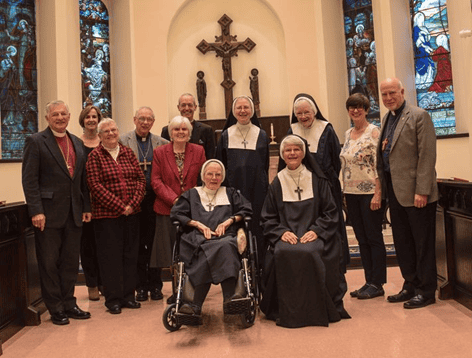
New York Ends Fight to Force Nuns to Pay for Abortions
January 27, 2026

